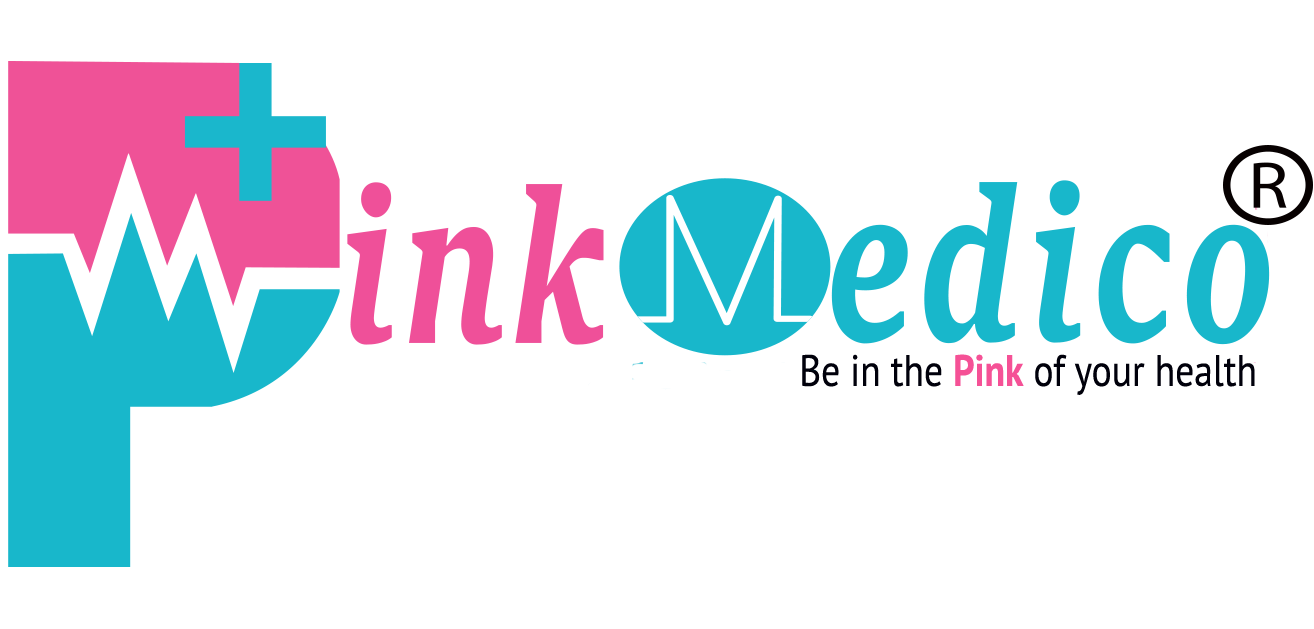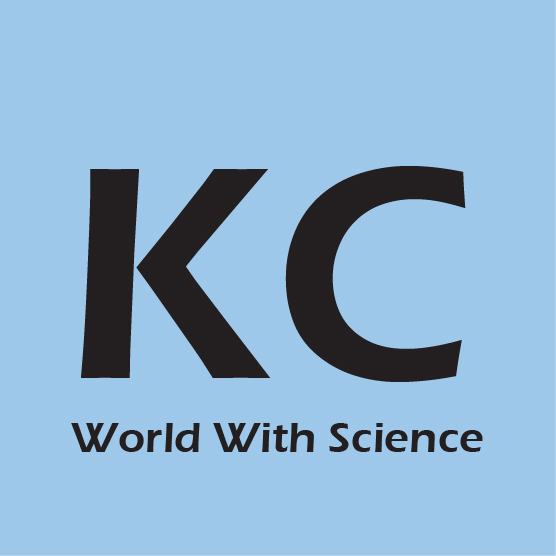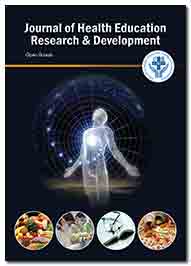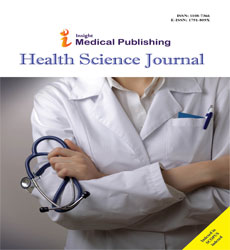Theme: The Future of Medical Education
Medical Education Summit 2019
ConferenceSeries Ltd takes immense pleasure to extend our warm welcome to invite all the participants from all over the world to attend 9th International Conference on Medical Education and Health Sciences, July 29-30, 2019 Sydney, Australia which will entail lively debates, prompt keynote presentations, Oral talks, Poster presentations, workshops and networking opportunities around a core of plenary and concurrent sessions based on pivotal issues in the Healthcare sector.
ConferenceSeries Ltd Organizes 1000+ Conferences every Year across USA, Europe & Asia with support from 1000 more scientific societies and Publishes 700+ Open access journals which contains over 50000 eminent personalities, reputed scientists as editorial board members.
Summary: Medical Education Summit 2019 is a forum to explore issues of mutual concern as well as exchange knowledge, share evidence and ideas, and generate solutions. The focus of Medical Education Summit 2019 is to present research findings, discuss research methodology and policy issues, and build and maintain essential networks between researchers, practitioners, policy makers and representatives of consumer organisations. Medical Education Summit 2019 works with the theme “The Future of Medical Education” aims to discover advances in health practice, management and education in relation to health disparities as well as a breadth of other topics. Patients with access to a regular health and medical professionals have lower overall health care costs than those without one, and health outcomes improve.
Target Audience:
- Healthcare Practitioners
- Pharmacists
- Physicians
- Pediatricians
- Researchers & Fellowship
- Psychiatrists
- Medical geneticists
- Oncologists
- Nurses
- Internist
- Health care providers
- Family Medicine Specialists
- Healthcare Researchers
- Community Care Specialists
- Public Health Specialists
- Manufacturing Medical Devices Companies
- Data Management Companies
Scope and Importance of Medical Education Summit 2019:
The conference will be organized to bring together practitioners, administrators, policy makers, researchers within the field of Medical Education and Health Sciences. Conference themes will focus on issues related with Innovation, Sustainability, Equity, Critical thinking and Uncertainty. However, rising costs combined with an ageing population and an increase in non-communicable diseases means that global healthcare needs to be “fundamentally reinvented”. Health services researchers examine the access to care, health care costs and processes, and the outcomes of health services for individuals and populations. Stronger medical & health systems are associated with better health outcomes and lower costs. Urbanization and globalization have its’ impact on what is needed from health care providers and subsequently how health care is organized. More and more cities and other local authorities become increasingly important for the health of their citizens.
Why to Attend???
Medical Education Summit 2019 conference is an opportunity for professionals in the field to learn more about a specific topic, network with like-minded people and gain technical information. There are many misconceptions and old guidelines that get challenged by our leading researchers and practitioners. Improved healthcare and community support also has the potential to prevent hospital admissions, particularly for ambulatory sensitive conditions. As well, better healthcare and community support can also prevent inappropriate and unnecessary use of residential care services. It will also provide insight to the novel inventions and techniques. It is very beneficial for the Healthcare practitioners and fellowship owners because it provides knowledge in the field. It also gives opportunities to the companies to showcase their products and have face to face meetings with scientists increasing their business opportunities. It also gives companies to know about their market competitors.
Exploring Emerging Innovations in Medical Education Summit 2019
Emerging innovations in the delivery of health care, particularly in developing countries, offer insights on how to tackle its rising cost, estimated at $7 trillion a year globally. Health care is consuming an escalating share of income in developed and developing nations alike. Yet innovators have found ways to deliver care effectively at significantly lower cost while improving access and increasing quality. They are uncovering patterns for raising productivity, and leaders across health sectors—public, private, and social—should take heed. With the recent passage of health reform legislation in the United States, for instance, tackling costs is imperative there, but it is also an important goal in every other part of the world.
Sessions/Tracks
ConferenceSeries Ltd takes immense pleasure to extend our warm welcome to invite all the participants from all over the world to attend 9th International Conference on Medical Education and Health Sciences, July 29 – 30, 2019 Sydney, Australia which will entail lively debates, prompt keynote presentations, Oral talks, Poster presentations, workshops and networking opportunities around a core of plenary and concurrent sessions based on pivotal issues in the healthcare sector.
Medical Education Summit 2019 Conference is a forum to explore issues of mutual concern as well as exchange knowledge, share evidence and ideas, and generate solutions. The focus of Medical Education Summit 2019 is to present research findings, discuss research methodology and policy issues, and build and maintain essential networks between researchers, practitioners, policy makers and representatives of consumer organisations.
Internal Medicine
General Medicine, otherwise called Internal Medicine, is the medicinal forte that includes treatment, finding and counteractive action of ailments in grown-ups. Doctors that have practical experience in General medicine are known as internists or basically doctors. They are profoundly gifted in overseeing patients with multi-framework illness forms. Doctors not just deal with hospitalized and walking patients yet in addition assume a major part in research and instructing. As general medicine patients are genuinely sick and require more mind-boggling conclusion and examinations, doctors do a noteworthy piece of their work in healing facilities. They likewise have subspecialty in maladies that influence specific organ frameworks.
Surgical Medicine and Medical Education
Throughout the history of surgery, the goal of medical professionals was to peak into the workings of the human body and to improve it with as small incisions and excisions as possible. The medical device start-up, Levita aims to refine such procedures with its Magnetic Surgical System. It is an innovative technological platform utilizing magnetic retraction designed to grasp and retract the gallbladder during a laparoscopic surgery. The technology started to get a foothold also in medical education. To provide surgeons and students with an alternative to a living human being to work on, a pair of physicians at the University of Rochester Medical Center (URMC) have developed a way to use 3D printing to create artificial organs.
Gynaecological Oncology
Gynaecologic oncology is a specialized field of medicine that focuses on cancers of the female reproductive system, including ovarian cancer, uterine cancer, vaginal cancer, cervical cancer, and vulvar cancer. As specialists, they have extensive training in the diagnosis and treatment of these cancers. A Gynaecologic oncologist is an obstetrician/gynaecologist who specializes in the diagnosis and treatment of women with cancer of the reproductive organs. Specifically, the gynaecologic oncologist treats cancer of the ovary, endometrium, uterus, cervix, vagina, vulva and trophoblastic disease. In order to become a gynaecologic oncologist in the United States, a physician must first complete an approved, 4-year residency program in obstetrics and gynaecology. Following this, he/she must complete a 2–4-year clinical fellowship in gynaecologic oncology. Presently, there are 32 fellowship training programs approved by the American Board of Obstetrics and Gynaecology, Inc (ABOG). The additional training during fellowship provides the skills needed for optimal care of women with a gynaecologic cancer.
Critical Care Medicine
Critical care medicine encompasses the diagnosis and treatment of a wide variety of clinical problems representing the extreme of human disease. Critically ill patients require intensive care by a coordinated team. The critical care specialist (sometimes referred to as an "intensivist") may be the primary provider of care or a consultant. The intensivist needs to be competent not only in a broad range of conditions common among critically ill patients but also with the technological procedures and devices used in intensive care settings. The care of critically ill patients also raises many complicated ethical and social issues, and the intensivist must be competent in areas such as end-of-life decisions, advance directives, estimating prognosis, and counselling of patients and their families. Most physicians trained in critical care medicine work in hospital-based settings, usually in intensive care units. Within internal medicine, critical care medicine training is most commonly coupled with a pulmonary medicine fellowship since pulmonologists frequently oversee care of patients in intensive care units. However, other internal medicine physicians, such as cardiologists and general internists practicing hospital medicine, may seek training in critical care medicine to facilitate their work with severely ill patients.
Public health and Preventive Medicine
Public Health and Preventive Medicine deals with groups or populations, rather than individuals. There is an ongoing need to expand the number and improve the specialist training of public health and preventive medicine residents, all medical students and residents should enter practice with substantive knowledge and practical skills in public health and preventive medicine. This knowledge and these skills will make them more effective in such areas as enabling patients to make lifestyle changes, identifying and reducing occupational and environmental risk factors, and empowering patients to manage their chronic health conditions.
Neurology and Neurosurgery
Neurologists are principal care providers or consultants to other physicians. When a patient has a neurological disorder that requires frequent care, a neurologist is often the principal care provider. Patients with disorders such as Parkinson's disease, Alzheimer's disease or multiple sclerosis may use a neurologist as their principal care physician in a consulting role, a neurologist will diagnose and treat a neurological disorder and then advise the primary care physician managing the patient's overall health. For example, a neurologist would act in a consulting role for conditions such as stroke, concussion or headache. Neurologists can recommend surgical treatment, but do not perform surgery. When treatment includes surgery, neurologists will monitor surgically treated patients and supervise their continuing treatment. Neurosurgeons are medical doctors who specialize in performing surgical treatments of the brain or nervous system.
Psychiatry and Behavioral Sciences
Social work in mental health, also called psychiatric social work, is a process where an individual in a setting is helped to attain freedom from overlapping internal and external problems social and economic situations, family and other relationships, the physical and organizational environment, psychiatric symptoms, etc. It aims for harmony, quality of life, self-actualization and personal adaptation across all systems. Psychiatric social workers are mental health professionals that can assist patients and their family members in coping with both mental health issues and various economic or social problems caused by mental illness or psychiatric dysfunctions and to attain improved mental health and well-being. They are vital members of the treatment teams in Departments of Psychiatry and Behavioral Sciences in hospitals. They are employed in both outpatient and inpatient settings of a hospital, nursing homes, state and local governments, substance abuse clinics, correctional facilities, health care services.
Nursing
Nurses promote health, counteract sickness and enable patients to adapt to sickness. They have a remarkable extent of training and can rehearse freely, even though they additionally work together with all individuals from the human services group to give the care required by every patient as a person. Medical Practitioners advocate for their patients and patients' families. They create and oversee nursing care designs and educate patients and their families in appropriate care. As instructors, they help entire groups by showing people and gatherings how to find a way to enhance or keep up their health.
Occupational Health & safety
Occupational health and safety envelops the social, mental and physical prosperity of laborers, that is the "entire individual. occupational health related medical problems are regularly given less consideration than occupational health and safety issues in light of the fact that the previous are by and large more hard to stand up to. Be that as it may, when Good health is tended to, so is safety, in light of the fact that a solid work environment is likewise a protected working environment. The opposite, however, may not be genuine - a supposed safe work environment isn't really additionally a solid working environment. The critical point is that issues of both health and safety must be tended to in each working environment.
Endocrinology & Diabetes
Endocrinology and diabetes is predominantly an outpatient specialty, but a number of patients require hospital admission for complex investigations or the management of complications. Furthermore, at least fifteen percent of hospital inpatients have diabetes mellitus or other endocrine conditions. Increasingly, hospital-based specialists manage diabetes patients jointly with colleagues in primary care and training has been adjusted to reflect this. Patients usually have chronic conditions and management is holistic and long term often in a multidisciplinary team fashion.
Paediatrics
A child has medical problems that might be genetic which can be learnt under general pediatrics. When a child has medical problems involving more than one body system, screening of genetic abnormalities may be recommended to identify the cause and make a diagnosis. This can be recognized by being educated about the modern imaging risks in children suffering with pediatric genetic disorders. During these techniques providing effective pain management for children is widely recognized as a complicated and challenging aspect. This challenge can be achieved by learning about child psychology and behavioral studies which can ease the complications with the child during the treatment.
Global Health and Health Sciences
The ascent to conspicuousness of the expression "global health" has happened in parallel with the advancement of globalization, an upgraded familiarity with basic vulnerabilities, and a sentiment expanded shared duty regarding imbalances exhibit on the planet today. For example, we should consider heightening health dangers postured by environmental change. By perceiving the part of globalization in driving ozone depleting substance discharges, we understand how ozone harming substance outflows may affect populace Good health not simply in one area, but rather internationally. We come to perceive how endeavours to battle these issues will require generous universal coordinated effort.
Food Safety
Food safety indicates to those hazards that have physical, chemical and microbiological effects it makes food injurious to the health. It also describes handling, preparation and storage of food in order to prevent foodborne illness. Food safety often overlaps with food defense to prevent harm to consumers. Food can transmit disease from person to person as well as serve as a growth medium for bacteria that can cause food poisoning. So food safety is a significant public health issue. Every year death of approximately 2 million people occurs due to unsafe food. More than 200 diseases occur because of harmful bacteria, viruses, parasites or chemical substances in food.
Dental Health Education
Current measures of dental health status are primarily clinical in nature and rely on clinical and radiographic assessment of the patient's dental health. Information about a patient's ability to perform usual activities related to good dental health--for example, chewing, speaking, and smiling--is not routinely collected. This study investigated what measures contribute to dental functional status, how they are related to traditional clinical measures, whether dental factors contribute to other generic measures of health, and the extent to which dental factors contribute to overall quality of life. The dental functional status index may be useful in clarifying the relationship between dental health and overall health and quality of life measures.
Aesthetic Medicine
Aesthetic Medicine is a developing clinical subspecialty and field in scientific research aimed at the use of minimally invasive cosmetic treatments to enhance patients' satisfaction with their physical appearance. This subspecialty is no longer limited to the fields of plastic surgery and dermatology, as many specialties are offering aesthetic medical procedures in order to better accommodate their patients' aesthetic needs. A growing trend among baby boomers is that aesthetic treatments are part of a normal health routine with the goal of maintaining a natural and healthy appearance.
Clinical Laboratory Science
Medical laboratory scientists are skilled health professionals who provide the laboratory-based tests and assays necessary for the diagnosis and treatment of patients. 70% of diagnoses made by clinical staff (such as doctors) depend on laboratory tests. In fact, the practice of modern medicine would not be possible without medical laboratory scientists. In addition to working in hospital and community diagnostic laboratories, medical laboratory scientists play important roles in other areas such as medical research, forensic science, and biotechnology. Medical laboratory science covers a wide range of subjects.
Conference Highlights
- Internal Medicine
- Surgical Medicine and Medical Education
- Gynaecological Oncology
- Critical Care Medicine
- Public health and Preventive Medicine
- Neurology and Neurosurgery
- Psychiatry and Behavioral Sciences
- Nursing
- Occupational Health & safety
- Endocrinology & Diabetes
- Paediatrics
- Global Health and Health Sciences
- Food Safety
- Dental Health Education
- Aesthetic Medicine
- Clinical Laboratory Science
To share your views and research, please click here to register for the Conference.
To Collaborate Scientific Professionals around the World
| Conference Date | July 29 - 30, 2019 | ||
| Sponsors & Exhibitors |
|
||
| Speaker Opportunity Closed | Day 1 | ||
| Poster Opportunity Closed | Click Here to View | ||
Useful Links
Special Issues
All accepted abstracts will be published in respective Our International Journals.
- Journal of Medical Research and Health Education
- Health Science Journal
- Research & Reviews: Journal of Medical and Health Sciences
Abstracts will be provided with Digital Object Identifier by











